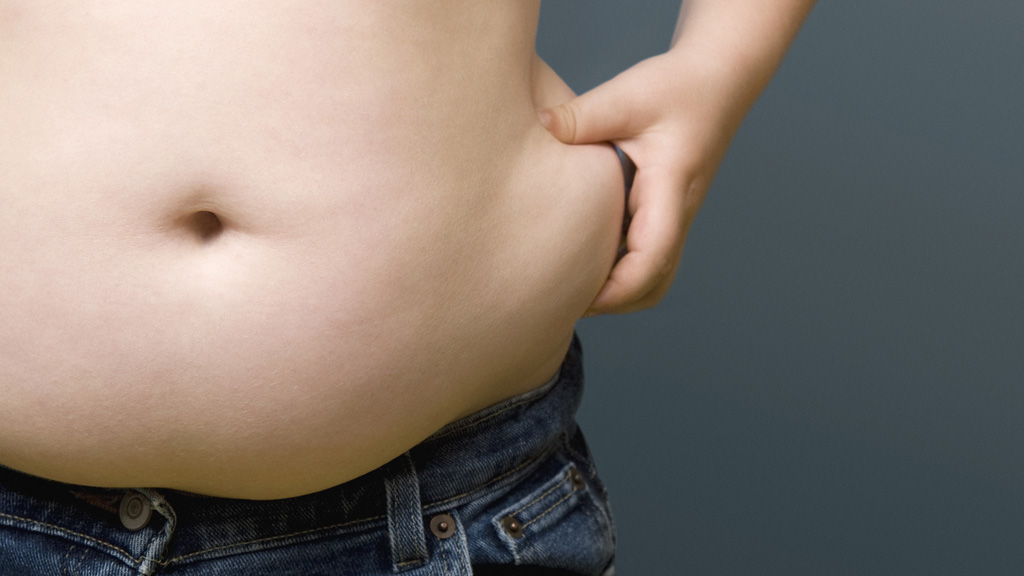Should we give obese children gastric surgery?
The head of the country’s obesity forum is calling for every obese child to be offered stomach surgery, as Science Reporter Asha Tanna reports.
Professor David Haslam says not enough children are offered operations because current NICE commissioning guidelines deny under 16s this option. He says this is wrong and performing a gastric bypass on children should not be seen as a quick fix because it can increase life expectancy by decades.
Radical measures are necessary if we are to start saving lives because for some obese children it is a desperate situation – Professor David Haslam
He told Channel 4 News: “Obesity is a massive problem, it’s a major concern both in adults and in children.
“The problem with obesity in children is that is leads to problems such as diabetes, which is alarming. This used to be a problem seen in the over 50s and seeing it in children is frankly shocking. There is also high blood pressure, asthma and joint pains and it is getting worse.
“In my 25 years as a GP I’ve seen the problem escalate to dramatic proportions and I’m seeing more and more obese and overweight kids. Radical measures are necessary if we are to start saving lives because for some obese children it is a desperate situation.”
In the last 20 years, the number of obese adults in the UK has more than doubled to over one million
At the moment diet and physical activity is recommended to tackle serious weight problems and surgery is usually a last resort and only offered to those aged 16 and over.
Measuring Up
On Monday the Academy of Medical Royal Colleges (AoMRC) published a report saying we are facing the greatest public health crisis due to rising levels of obesity. In its report “Measuring Up” endorsed by 220,000 practising doctors, it sets out 10 recommendations to tackle the problem.
These include a 20 per cent tax increase in the cost of sugary drinks, fewer fast food outlets near schools, a ban on unhealthy food in hospital and a 9pm watershed on advertising of foods high in saturated fats, sugar and salt.

In the last 20 years, the number of obese adults in the UK has more than doubled to over one million. The most common method of measuring obesity is calculating an individual’s Body Mass Index (BMI).
This is calculated by dividing a person’s weight measurement (in kilograms) by the square of their height (in metres). In adults, a BMI of 25 to 29.9 means that person is considered to be overweight, and a BMI of 30 or above means that person is considered to be obese.
Band or bypass?
Gastric bypass surgery involves shrinking the stomach to the size of a golf ball using staples. The staples are used to divide the stomach into a small upper section and a larger bottom section. The top section of the stomach (called the pouch) is where the food that is eaten goes. This pouch is then connected directly to a section of the small intestine, bypassing the rest of the stomach and bowel.
A gastric band is an inflatable band that sits around the top of the stomach. Inflation of the band narrows the stomach, limiting its capacity to take in food and increasing the feeling of fullness. Once fitted, the band is expected to remain in the patient for life, which is why this option is rarely offered to teenagers, as there are risks that the band can slip or erode over time.
Doctors believe the weight loss after a gastric bypass is more significant than after a gastric band. Most people with a gastric band will lose around half their excess body weight, whereas most people with a gastric bypass will lose around two-thirds of the excess body weight.
Obesity costs the NHS £5.1bn a year, the long term consequences of obesity include diabetes, high blood pressure heart disease and cancer. The academy’s chairman, Professor Terence Stephenson, said: “This report does not pretend to have all the answers. But it does say we need together to do more, starting right now, before the problem becomes worseand the NHS can no longer cope.”
‘Blunt weapon’
The food and drink industry is being asked by the Department of Health to play a greater and leading role in supporting people to make healthier choices. But the British Soft Drinks Association says the latest recommendation is punishing the majority for the failings of a few.
Gavin Partington, its director general, told Channel 4 News: “Many of us live balanced lifestyles but there is a minority who are seriously obese who have a problem so we need policies to address that.
“But a broad brush tax rise which puts the price up for everybody during what has been widely regarded as the worst recession since the 1930s seems like a very blunt weapon that is unlikely to result in a huge impact in terms of tackling obesity.”
The Department of Health said it was studying the findings.
-
Latest news
-
Laughing Boy: New play tells the tragic tale of Connor Sparrowhawk5m

-
Sewage warning system allows some of worst test results to be left off rating system, analysis shows3m

-
Post Office inquiry: Former CEO didn’t like word “bugs” to refer to faulty IT system4m

-
Israeli soldier speaks out on war in Gaza12m

-
PM’s defence spending boost should be ‘celebrated’, says former Armed Forces Minister4m

-




